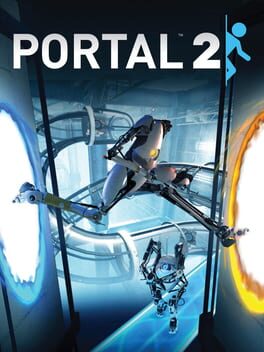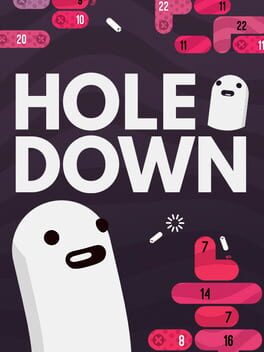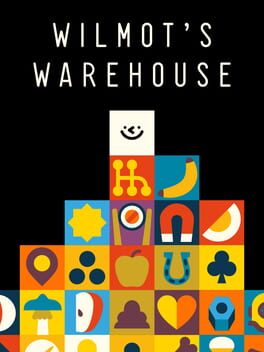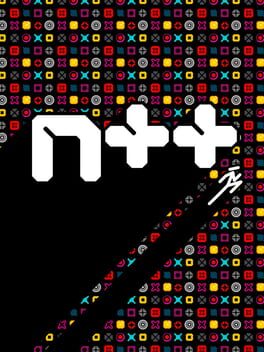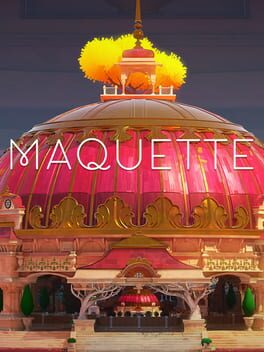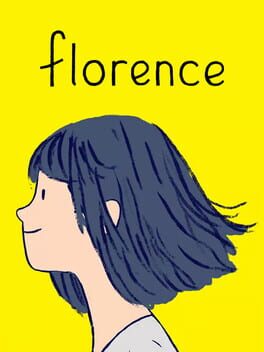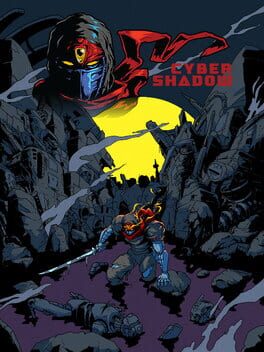FBracht
20 reviews liked by FBracht
Tunic
2022
I was born in 1991, around six years after the original Legend of Zelda was released for the Famicom and NES. I lived and grew up in a world where Zelda already held a deep meaning for a large amount of people as a world of adventure and wonder. Each person as they grew up and found love in that series, had a Zelda they could call their own. Mine was Ocarina of Time for the N64 but the story of my joy for that comes another day.
Counter to that, I was well into my adult life when the Soul's series of games exploded into popularity. Dark Souls was something I tried briefly but only truly grew to enjoy in the wake of trying the game Bloodborne. This combined with going back to finish Demon's Souls, Dark Souls and going on just this year to finish Elden Ring, even to drink in Bloodborne PSX, has infused me with a euphoria of sorts that is special to me; a fantasy world where my identity and self is mine to craft and the story ahead, the world is what matters.
Tunic as such, is an odd thing indeed. It combines two things I am unfamiliar with; the stylings and world of the original Zelda I, complete with an homage to its famous manual and some of the combat mechanics and difficulty that now perhaps unfairly, we attribute to the Souls series, considering resources for attacks and planning out action and response carefully. It is an oddity, combining the two aspects of both I either am unfamiliar with or care little for; the combat seen in Souls and the completely left to your own devices exploration of the first Zelda, which feels daunting for the way I perceive and take in information.
So it is with joy that I find Tunic captures me, and delivers to me a feeling I've been searching for, maybe not as powerfully as I expected, but one that I know I've been hoping to find in games like this; wonder. I've a memory of days long ago when the idea of seeing the fields of Hyrule was overwhelmingly exciting, or when witnessing the spookiness of the ruined Hyrule Town filled me with dread. Tunic once again makes me feel a little bit, like the child who looked at a video game and saw in it a world completely contained within my TV, something that is magic and wonderous and should be explored. I admit, it is one that to finish it more fully, I sought help and guides in doing so. It was something that was so freeform, to seek an ending that could give me answers to whether it was worth it, it feels like the help is needed. I struggle to parse date or puzzles the same as others and my real life exhaustion meant Tunic just for me, was asking a bit too much of me to log and understand every corner of its world. But much like one of my other favourite games, Outer Wilds, the joy of discovering things, especially when it relates to its scribbled in manual and the hidden depths it holds, are what matter so much to me. It genuinely doesn't punish me for seeking help and it is a world that is resplendently curious as it disguises it's exploration through menu's and language that hides things we might see as obvious but encourages us to study and parse, to engage with our own wonder rather than be dazzled by it senselessly. It's easy to fill your world with beautiful things that you are amazed by, but it is another to get us curious enough to engage with them and to want to understand them. I think Tunic balances well by using it's manual's visually expressive art to indicate in places while balancing it with untranslated text in places where you can innately assume it's use; e.g. the pause in the pause menu is untranslated, therefore our brain fills in the gaps. Certain pages in the manual will have one or two words in English which you can use to infer the rest. It's a quite joyful push to understand everything that's going on.
At its core, combat is not exactly my favourite thing. It could be down to a lack of mastery, but learning the intricacies of combat has been a bit of a mess and the game's basic sword combat consists of a three hit combo system where if you commit to three, you end in a lunge that takes you forward a bit and tracks. However, it's hard to guess when to mash and when to hard stop as certain bosses have aggressive dodges they can enact that make it feel a bit like your buttons could be read and the stat system included in game almost feels like a barrier to doing things rather than a necessary thing to invest or spec. As such, it doesn't really feel as versatile as perhaps the Soul's series levelling systems and again, more 'you must be this beefy to fight this boss' kind of deal.
At its core appeal, Tunic is about mystery and having the courage to ask questions and explore. It's engaging with the world and challenging yourself, both physically and mentally, to understand it and in part, your own part in it. It's a breath taking adventure that even if has small hiccups, it is an experience I whole heartedly recommend. I hope this returns some joy to you, the way it did me.
Counter to that, I was well into my adult life when the Soul's series of games exploded into popularity. Dark Souls was something I tried briefly but only truly grew to enjoy in the wake of trying the game Bloodborne. This combined with going back to finish Demon's Souls, Dark Souls and going on just this year to finish Elden Ring, even to drink in Bloodborne PSX, has infused me with a euphoria of sorts that is special to me; a fantasy world where my identity and self is mine to craft and the story ahead, the world is what matters.
Tunic as such, is an odd thing indeed. It combines two things I am unfamiliar with; the stylings and world of the original Zelda I, complete with an homage to its famous manual and some of the combat mechanics and difficulty that now perhaps unfairly, we attribute to the Souls series, considering resources for attacks and planning out action and response carefully. It is an oddity, combining the two aspects of both I either am unfamiliar with or care little for; the combat seen in Souls and the completely left to your own devices exploration of the first Zelda, which feels daunting for the way I perceive and take in information.
So it is with joy that I find Tunic captures me, and delivers to me a feeling I've been searching for, maybe not as powerfully as I expected, but one that I know I've been hoping to find in games like this; wonder. I've a memory of days long ago when the idea of seeing the fields of Hyrule was overwhelmingly exciting, or when witnessing the spookiness of the ruined Hyrule Town filled me with dread. Tunic once again makes me feel a little bit, like the child who looked at a video game and saw in it a world completely contained within my TV, something that is magic and wonderous and should be explored. I admit, it is one that to finish it more fully, I sought help and guides in doing so. It was something that was so freeform, to seek an ending that could give me answers to whether it was worth it, it feels like the help is needed. I struggle to parse date or puzzles the same as others and my real life exhaustion meant Tunic just for me, was asking a bit too much of me to log and understand every corner of its world. But much like one of my other favourite games, Outer Wilds, the joy of discovering things, especially when it relates to its scribbled in manual and the hidden depths it holds, are what matter so much to me. It genuinely doesn't punish me for seeking help and it is a world that is resplendently curious as it disguises it's exploration through menu's and language that hides things we might see as obvious but encourages us to study and parse, to engage with our own wonder rather than be dazzled by it senselessly. It's easy to fill your world with beautiful things that you are amazed by, but it is another to get us curious enough to engage with them and to want to understand them. I think Tunic balances well by using it's manual's visually expressive art to indicate in places while balancing it with untranslated text in places where you can innately assume it's use; e.g. the pause in the pause menu is untranslated, therefore our brain fills in the gaps. Certain pages in the manual will have one or two words in English which you can use to infer the rest. It's a quite joyful push to understand everything that's going on.
At its core, combat is not exactly my favourite thing. It could be down to a lack of mastery, but learning the intricacies of combat has been a bit of a mess and the game's basic sword combat consists of a three hit combo system where if you commit to three, you end in a lunge that takes you forward a bit and tracks. However, it's hard to guess when to mash and when to hard stop as certain bosses have aggressive dodges they can enact that make it feel a bit like your buttons could be read and the stat system included in game almost feels like a barrier to doing things rather than a necessary thing to invest or spec. As such, it doesn't really feel as versatile as perhaps the Soul's series levelling systems and again, more 'you must be this beefy to fight this boss' kind of deal.
At its core appeal, Tunic is about mystery and having the courage to ask questions and explore. It's engaging with the world and challenging yourself, both physically and mentally, to understand it and in part, your own part in it. It's a breath taking adventure that even if has small hiccups, it is an experience I whole heartedly recommend. I hope this returns some joy to you, the way it did me.
Portal 2
2011
Damn, early Valve games have so much charm to them. Portal 2 improves on its predecessor with updated graphics, more levels, a more interesting story, new characters, new abilities, and even more excellent writing that hits the funny bone just right.
This was as much fun in the gameplay department as it was entertaining in the storytelling department: and that's to say it was immensely both! A couple of my friends didn't like Wheatley, but I thought he was great! GladOS makes a return as well, as petty and sarcastic as ever, and I even got to witness the legendary lemons speech for myself.
I don't believe I have any major criticism for this game, I thoroughly enjoyed it all the way through, and I love how it incorporated the puzzle solving into exploring the facility instead of just pushing you through rooms similar to how the original did.
I would highly recommend this one! Deserves its classic status!
This was as much fun in the gameplay department as it was entertaining in the storytelling department: and that's to say it was immensely both! A couple of my friends didn't like Wheatley, but I thought he was great! GladOS makes a return as well, as petty and sarcastic as ever, and I even got to witness the legendary lemons speech for myself.
I don't believe I have any major criticism for this game, I thoroughly enjoyed it all the way through, and I love how it incorporated the puzzle solving into exploring the facility instead of just pushing you through rooms similar to how the original did.
I would highly recommend this one! Deserves its classic status!
Holedown
2018
Que jogo maravilhosamente viciante. É muito satisfatório acertar um tiro direitinho e ver todas as bolinhas destruindo um bloco com uma "vida" alta.
A progressão e esquema de ir melhorando as habilidades é ótimo e equilibrado, você nunca se sente forte demais ou fraco demais, é o suficiente para manter o jogo interessante o tempo todo.
(Jogado pelo Play Pass do Google)
A progressão e esquema de ir melhorando as habilidades é ótimo e equilibrado, você nunca se sente forte demais ou fraco demais, é o suficiente para manter o jogo interessante o tempo todo.
(Jogado pelo Play Pass do Google)
Wilmot's Warehouse
2019
This review contains spoilers
I love this game! I think it masterfully discusses contemporary issues regarding labor and even complex issues like ableism and accessibility.
The labor issues are very easy to understand, in my opinion. The game makes it obvious and to your face through every interaction with CJ. But there are other subtler hints too, like the years.
But maybe the ableism/accessibility is less obvious and can go unnoticed to more experienced gamers - here's how it's represented through gameplay imo: the better you play, the easier the game gets since you buy upgrades with performance stars. Meanwhile, those who have a hard time with the game don't get stars, so they can't make the game easier. The products keep on coming and they pile up - the player is left without any help when they need most and even moving around can be hard. Also, it's not easy to find information about the controls and I think that too is by design.
Because I was mulling over all those things, I figured out the ending way before, so I decided to go on strike and I stopped organizing or delivering anything -- I was sure Wilmot would be fired and substituted for robots and that's exactly what happens.
So this is how I played Wilmot's Warehouse. It was a very rich experience and I can't recommend it enough!
The labor issues are very easy to understand, in my opinion. The game makes it obvious and to your face through every interaction with CJ. But there are other subtler hints too, like the years.
But maybe the ableism/accessibility is less obvious and can go unnoticed to more experienced gamers - here's how it's represented through gameplay imo: the better you play, the easier the game gets since you buy upgrades with performance stars. Meanwhile, those who have a hard time with the game don't get stars, so they can't make the game easier. The products keep on coming and they pile up - the player is left without any help when they need most and even moving around can be hard. Also, it's not easy to find information about the controls and I think that too is by design.
Because I was mulling over all those things, I figured out the ending way before, so I decided to go on strike and I stopped organizing or delivering anything -- I was sure Wilmot would be fired and substituted for robots and that's exactly what happens.
So this is how I played Wilmot's Warehouse. It was a very rich experience and I can't recommend it enough!
N++
2015
Maquette
2021
What sucks is how second-fiddle the puzzle gameplay is to the romance, which is really bottom-tier stuff; game devs really need to move past 500 Days of Summer, twee, kind of quirky but actually really boring characterization of romance. I don't think I played more than three minutes of puzzle solving before being interrupted by the awful characters.
Maquette
2021
I admittedly grumbled when I first saw that all too familiar notebook-writing conjuring itself over the scenery of the opening walk through the garden. In the vein of previous titles, such as Gone Home and What Remains of Edith Finch, Annapurna Interactive return to telling sad stories, about annoyingly twee young people, through mind-bending environments that abstract their changing mental states.
The relationship narrative here is simple but painfully typical of this sort of game. It was only last month PS Plus gave us Concrete Genie, another smug game about sketching hipsters, ugh.
That said, it works just fine, syncing emotionally the enjoyable (and sometimes hard?) puzzle-solving gameplay.
The relationship narrative here is simple but painfully typical of this sort of game. It was only last month PS Plus gave us Concrete Genie, another smug game about sketching hipsters, ugh.
That said, it works just fine, syncing emotionally the enjoyable (and sometimes hard?) puzzle-solving gameplay.
Florence
2018
Cyber Shadow
2021
It falls really really hard on that classic pitfall of skill trees in which the upgrades feel like the game was holding back on essential verbs instead of being interesting additions to an already engaging moveset. Because of that, it spends most of its run time actively choosing to be rather bland — something that is only reinforced by the explicit and unchallenging ways it clings to its inspirations — to then get super cool for a hot second before it ends, like it was teasing you.

